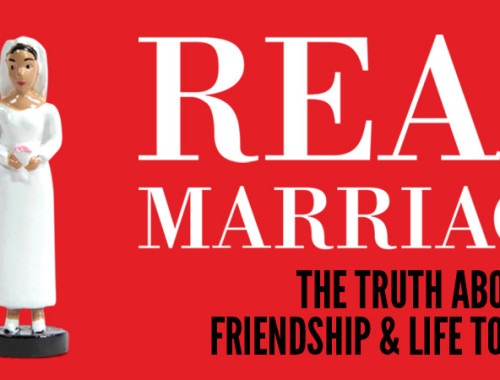Remember to put “Book Club” at the top of your comment if you’re reading along with me!
I left off last week before I’d finished chapter one– I don’t think I’ll do this that often, since I want to get through this book, but since this chapter is dedicated to explaining the thesis that Stasi and John are going to be arguing for the rest of the book, I thought it was worth to spend some time pulling it apart.
Beauty to Unveil
What Stasi is doing in this section is pretty typical of evangelicals; in an attempt to be subversive, she tries to re-define beauty. The world tells women that they need to be physically beautiful, but God says that women need to be inwardly beautiful– after all, man looks on the outward appearance, but God looks on the heart. It’s what’s inside that matters.
A lot of people– religious and secular– have been saying this for a long time, and American culture doesn’t seem to be any closer to liberating women from the oppression of sexual objectification. One could argue that it’s gotten worse in the past decades, and exponentially worse in the last few years– tumblr and instagram and pinterest have created a delivery method for “thinspo” and “pro-ana” to be a huge part of a teenage girl’s experience online. I would argue that conservative evangelical teachings about “modesty” are just as oppressive and degrading as anything people can see in Vogue or Seventeen.
What Stasi is trying to ignore in this section is that beauty doesn’t mean what Stasi is trying to make it mean. Beauty can be discussed in a lot of different ways: Edgar Allan Poe wrote a treatise on how beauty was going to save the world in Eureka; The Lake Poets used reams of paper to explain how beauty can be transcendent, divine– how it can be the doorway to sublimity.
When we’re talking about women being “beautiful,” however, it’s important to at least acknowledge that physical attractiveness is a part of what it means for us to be beautiful, and “physical attractiveness” is almost always defined by white supremacy and sexual objectification in American culture. Trying it ignore the overwhelming pressure that women feel when it comes to feeling beautiful is only going to weaken anything else you say, because you’re not being honest about what it’s like to be a woman today.
Notice that I’ve said that Stasi is trying to ignore this– she actually can’t get away from the physical component of beauty and how American culture has informed her view. In order to make her point about how all women want to be beautiful, and how this is a good thing, she gives an example of attending a formal ball:
For weeks– no, months ahead of the affair– I like every other woman who attended, asked the all-important question: “What will I wear?” (As the special night drew closer, I also wondered if it was possible to lose twenty pounds in seven days.)
…
Above the sound of the splashing water from the fountains, even above the music that floated through the air, was the sound of delighted exclamations. “You look beautiful!” “You are gorgeous!” “What an amazing dress!” “How lovely you are!” We were delighting int each other’s beauty and enjoying our own. We were playing dress-up for real and loving it.
Stasi does not say anything– not a single thing– to critique this experience.
To me, reading this passage was a little painful.
First of all, I don’t think I’d spend months ahead of time trying to figure out what I was going to wear unless I had to wear something expensive and that meant budgeting for it (as if I’d ever be going to something where I’d have to budget for a dress and not wear something I already own). I also think it’s possible that at least one women who went to this didn’t really care that much.
Second, as facetious as Stasi might have meant this, it’s not a good thing when you want to lose 20 pounds in a week– that is dangerous. If you want to lose weight, 1-2 pounds a week is a realistic, healthy goal. The fact that Stasi felt pressure to be “skinnier” in order to attend a black-tie event is a problem, and she should have said so or said nothing about it at all.
Last, she talks about how women spent the night complimenting each other on their appearance. I enjoy being complimented– there are times when I put a little extra effort into my appearance, and I appreciate it when someone notices. It feels nice, no lie. However, I’m pretty sure the men at this event were all wearing tuxedos and I’d bet you that they didn’t wander around this garden saying “I love your bow tie! So fetch!”
Women, in order to make small-talk, frequently fall back on complimenting each other on our appearance, and this starts when we are incredibly young. This isn’t the amazing, wonderful thing that Stasi is trying to make it out to be. It’s the positive flip-side of how women enforce white supremacist, fat-shaming beauty standards on each other. It’s an example of how our culture has utterly failed women, because we are still locked into recognizing each other as physical, consumable objects first, instead of as human beings with dreams, opinions, problems, and joys.
Stasi seems to be blind to how she hasn’t escaped what our culture has to say about beauty and women– she’s included three separate things our culture teaches about beauty in two paragraphs!
She continually falls back on a stereotype about girls– that we enjoy playing dress-up, and the way that little girls play dress-up is lightyears apart from how boys play the same exact game:
Little boys play dress up, too, but in a different way . . . they never once dressed up as bride-grooms, fairies, or butterflies. Little boys do not paint their toenails. They do not beg to get their ears pierced. Little boys don’t play dress up with Mommy’s jewelry and high heels. They don’t sit for hours and brush each other’s hair.
One question, John and Stasi: if they had wanted to, would you have let them?
Pretty sure the answer to that one is “heck no.”
Little boys, just like little girls, absorb how our culture genders people starting from a very young age, and they are aware of these stereotypes as young as 3 or 4. They know what boys and girls are “supposed” to do and say, and they know that they can be severely punished for not conforming– they’ve seen it happen with older children. They’ve overheard their parents say bigoted, homophobic things. They hear sermons like this one:
Dads, the second you see your son dropping the limp wrist, you walk over there and crack that wrist. Man up! Give him a good punch. OK? ‘You are not going to act like that. You were made by God to be a male and you are going to be a male.’
And when your daughter starts acting too butch, you reign her in. And you say, ‘Oh, no. Oh, no, sweetheart. You can play sports. Play ‘em. Play ‘em to the glory of God. But sometimes you are going to act like a girl and walk like a girl and talk like a girl and smell like a girl and that means you’re gonna be beautiful, you’re gonna be attractive, you’re gonna dress yourself up.’
To be absolutely clear: Sean Harris (who later claimed this was “a joke”) was talking about four year olds.
Anyway, that girls sometimes play dress-up and that playing dress-up does sometimes look like princesses and fairies is not a good argument for why all women want to be seen as “beautiful,” but it’s essentially all that Stasi has based her argument on.
I want to close out this post with a really good example for exactly how oblivious Stasi is to the fact that not every single woman on the planet wants what Stasi wants, and thinks the way Stasi thinks.
During the midst of a talk I gave on the heart of a woman last year, one of the women in the audience leaned over to a friend and said, “I don’t know what this whole thing is about– twirling skirts and all.” The words had barely left her mouth when she burst into tears and had to leave the room. Little did she know how deep the desire ran, and how much pain it had caused. Many of us have hardened our hearts to this desire, the desire to be Beauty. We, too, have been hurt so deeply in this area that we no longer identify with, perhaps even resent, the longing. But it’s there.
This paragraph made me want to scream, so I did. I also threw my book across the room and Elsa looked at me funny.
What Stasi has done here is infuriating. Instead of even considering that this women who she made cry might have been reacting to how she’s been made to feel deficient and abnormal in a Christian culture that exalts femininity at every turn and humiliates the women who don’t conform, Stasi assumes that this women doesn’t understand the “twirling skirts” picture of femininity– not because she’s just not the kind of woman who likes that sort of thing, but because she is broken. She has a “hardened heart.” She “resents” it. There is something wrong with this woman, for her to be hurt by Stasi’s reinforcement of a stereotype that might have been used as a weapon against her for her entire life.
If I’d been sitting in that auditorium, listening to yet again another woman telling me that “all women” have this bizarre need to wear ballerina tutus and tiaras, I might have walked out crying, too. But it wouldn’t be because of anything Stasi had to say— no, if I disagree with her because I’m damaged in some way.
That is . . . frustrating. This is not the first time that Stasi has made this argument– that women who disagree with her are damaged, broken, hurt, or scarred– and it’s not the last.




